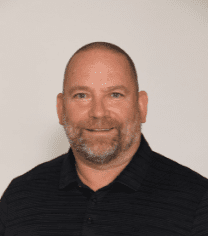Move Your Career Up to the Next Level.
When you’re ready to take the next step in your career, Avila’s Kinesiology M.S. graduate program will prepare you to become a clinical leader in kinesiology, exercise science, strength and conditioning, and performance training. A Master’s of Science in Kinesiology is available to undergraduate students through either a 4 + 1 (undergraduate + graduate) program or in a traditional two-year path.
KN 519. Biomechanics and Motion Analysis. (3)
Study of external forces and their effects on the body and its movement. Students will analyze, describe, and explain motion as they apply biomechanical principles to sport, exercise, and understanding causes of injury. This course emphasizes the application of core concepts of biomechanics using problem-based strategies that bridge the gap between the classroom and professional relevance. Prerequisite: Graduate status. SP.
KN 520. Advanced Stress Physiology. (3)
Examines the stress-response and effects of chronic psychological stress on various body systems. This course employs a psychophysiological approach to study the human stress response, regulation and adaptation to chronic stress, and the effects of trauma on physical and mental health throughout the lifespan. Personal and social responsibilities for dealing with stress related disorders and conditions, health epidemics, natural disasters, and the effects of war are evaluated. The global impact of stress is evaluated through interactions with a diverse range of people, ideas, cultural perspectives, and global organizations. Prerequisite: Graduate status. FA
KN 565. Strength and Conditioning Lab. (3)
Provides aspiring strength and conditioning professionals a comprehensive “hands-on” experience applying exercise science, exercise testing and training, program design, and facility administration. Prerequisite: Graduate status. FA, SP, SU.
KN 576. Motor Behavior. (3)
This course combines a conceptual model of motor learning and performance with a principles-to-application learning approach. Emphasis is placed on applying knowledge about neuromuscular control of movement and psychological regulation of behavior to the observation, evaluation, and development of motor skills. Research and examples related to ADLs, rehabilitation, and athletic performance are examined and used to help students learn to ask better questions, identify solutions, and support their answers with established theory. Traditional and contemporary movement forms are investigated to increase cultural awareness and social engagement beyond the classroom. Prerequisite: Graduate status. SP.
KN 580. Topics in Kinesiology. (1-3)
A review of current literature, critical issues, and selected problems related to exercise and sports science, health promotion, and sports management. Prerequisite: Graduate status. FA, SP, SU.
KN 581. Advanced Exercise Physiology. (3)
An in-depth study of human bioenergetics, neuromuscular control of movement, and cardiopulmonary function. Emphasis is placed on reinforcing important physiological concepts (i.e. flow down gradients, cell-cell communication, homeostasis) and general principles of exercise training (i.e. individuality, specificity, reversibility, progressive overload, variation). Understanding how the body responds to physical stressors is essential to individualizing exercise prescription for health and fitness, program design for team performance, and modifying training according to environmental influences. Prerequisite: Graduate status. FA.
KN 618. Clinical Kinesiology. (3)
This course uses a case-based approach organized in three levels of neuromechanical analysis: tissue, single- and multi-joint, and whole body. Students will describe and explain motion as they apply movement concepts (e.g. mechanopathology and pathomechanics) to reducing movement related injury and optimizing motor learning and performance. Emphasis is placed on the integrated relationships between structure and function of the skeletal-articular, myofascial, and motor control systems. Laboratory activities include measuring joint range of motion, movement assessment, and corrective exercise programming. Prerequisite: KN 519 with a “C” or better. SP.
KN 627. Evidence-Based Practice. (3)
Introduces students to research methods and evidence-based practice in Kinesiology. Special emphasis is placed on critically reading research, establishing cause and effect, and translating research into effective practice. Prerequisite: Graduate status. FA.
KN 639. Advanced Sport Psychology. (3)
The primary academic objectives of the course include the introduction of the short but rich history of sport psychology, to provide an overview of the specializations within the field, to take a comprehensive and in-depth look at practical applications of sport/positive psychological research and theory to exercise and athletic competition, and to familiarize the student with potential careers and interest areas within sport psychology. Prerequisite: Graduate status. SP.
KN 643. Measurement and Evaluation. (3)
Reviews basic concepts of measurement and evaluation in Kinesiology. Employs statistical software (e.g., SPSS) for data analysis, interpretation, and displaying of results. Prerequisite: Graduate status. SP.
KN 643. Cultivating Growth thru Adversity. (3)
Introduces students to multiple cognitive strategies and psychological approaches in finding meaning through adversity to assist in various practices within the field of Kinesiology. Special emphasis is placed on introspection, critical thinking, challenging assumptions and biases, reality testing, cognitive reframing, developing empathetic listening skills, experimentation, exploration and asking more resourceful questions to position ourselves for our own brand of success despite adversity. Prerequisite: Graduate status. FA.
KN 680. Topics in Kinesiology. (1-3)
A review of current literature, critical issues, and selected problems related to exercise and sports science, health promotion, and sports management. Prerequisite: Graduate status. FA, SP, SU.
KN 682. Internship in Kinesiology. (1-3)
An off-campus monitored work or service experience. Student interns are directed and evaluated by a faculty member with appropriate supervision by an on-site professional. Repeatable for up to six credit hours towards the degree. Prerequisite: Graduate status. FA, SP, SU.
KN 699. Applied Research Project. (1-3)
Develops skills in research design, research methods, and communication. Students complete a research paper and presentation on their topic of choice. Repeatable. Prerequisite: Graduate status. FA, SP, SU.
The Next Step
Thoughts and profiles from Avila University’s Department of Kinesiology professors and graduates.
Department of Kinesiology Newsroom

Contact
Gerald Larson, Ph.D., ACSM-CEP, NSCA-CSCS*D, Associate Professor and Program Director of Kinesiology
P: 816-501-3714 / E: gerald.larson
